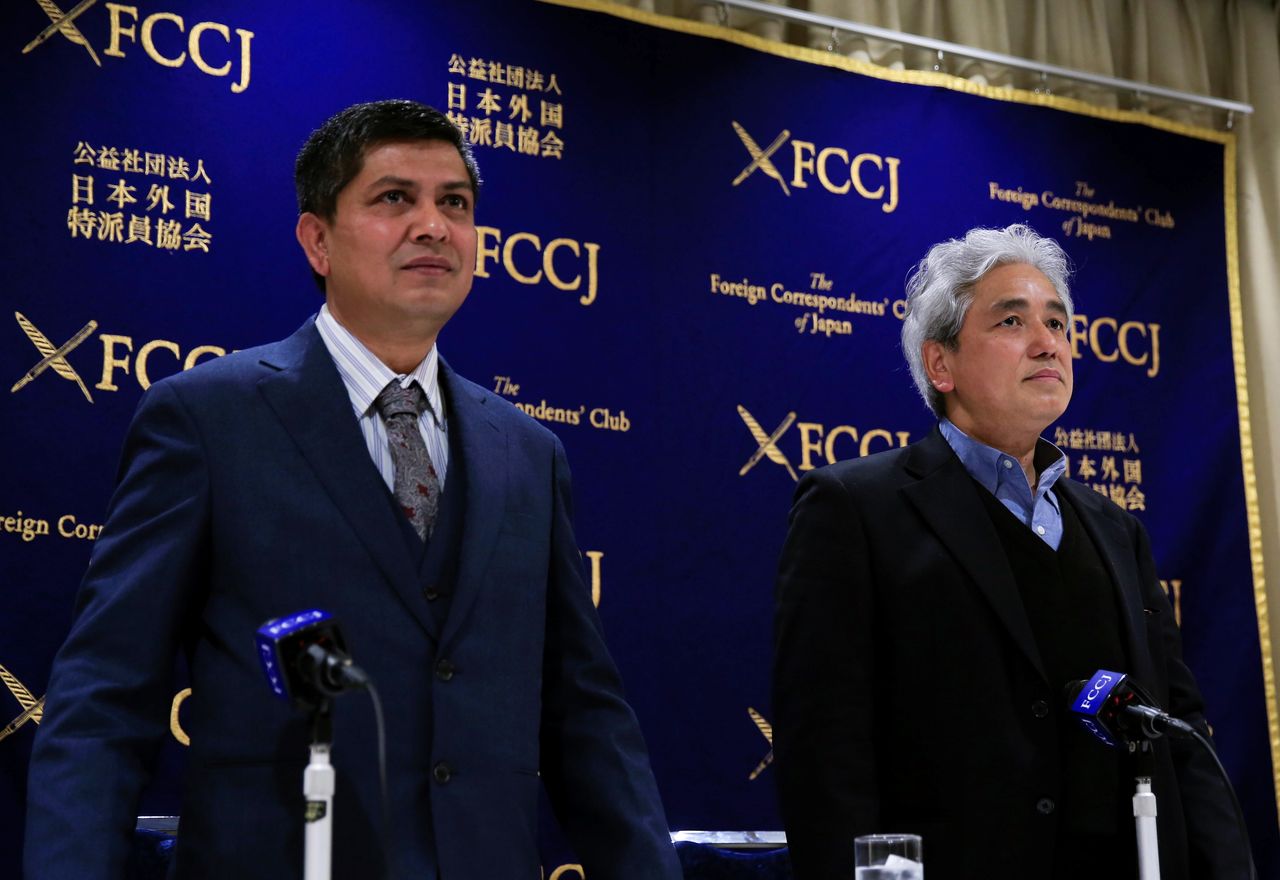Myanmar activists in Japan call for stronger steps against junta
Newsfrom Japan
Politics- English
- 日本語
- 简体字
- 繁體字
- Français
- Español
- العربية
- Русский
TOKYO (Reuters) - Myanmar activists in Japan called for the Japanese government and international community to take stronger steps “to stop the killing” in their homeland, urging the imposition of an arms embargo to put pressure on the military junta.
Though Western nations have imposed more sanctions on groups and individuals linked to last month’s coup, activists said more pressure was needed, particularly from Japan.
Kyaw Kyaw Soe, a board director of the Union of Myanmar Citizens Association in Japan, urged Tokyo to use its clout to speak directly with the generals, whose brutal crackdown on protests has left at least 261 dead.
“I think the Japanese government has some kind of power, diplomatic and economic and also political. I think the Japanese government should directly talk to the military leaders,” he told a news conference in Tokyo.
“The international community must step up ... to stop the killing in Myanmar - not only issuing statements or making comments.”
A Japanese official said last week that Japan was monitoring developments in Myanmar since the coup and would consider how to respond. Japan is a major aid donor to Myanmar, and there have long been close economic and business ties.
Zaw Min Htut, head of the Burmese Rohingya Association in Japan, said nobody should recognise the military government in any form, describing measures taken against the coup-makers as “very small sanctions.”
“I think it is not enough. You need to do more, (in) a stronger way. At least the United Nations Security Council should put an arms embargo on Myanmar,” he said.
“It is the same military who committed genocide on my people, the Rohingya, in 2017,” he added.
“After four years, they are committing the same things on the streets of Yangon, Mandalay, Meiktila. Everywhere in the country.”
(Reporting by Elaine Lies; Editing by Simon Cameron-Moore)
